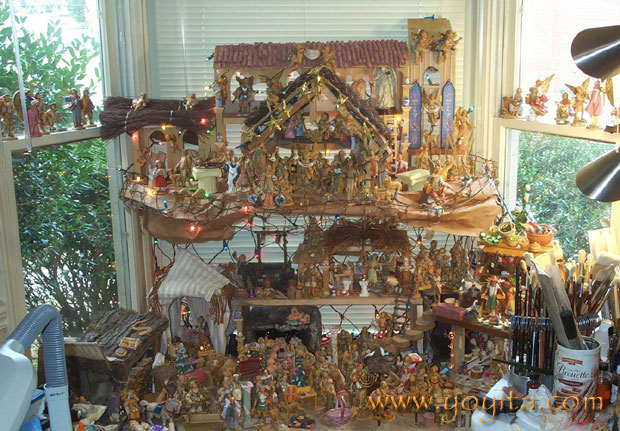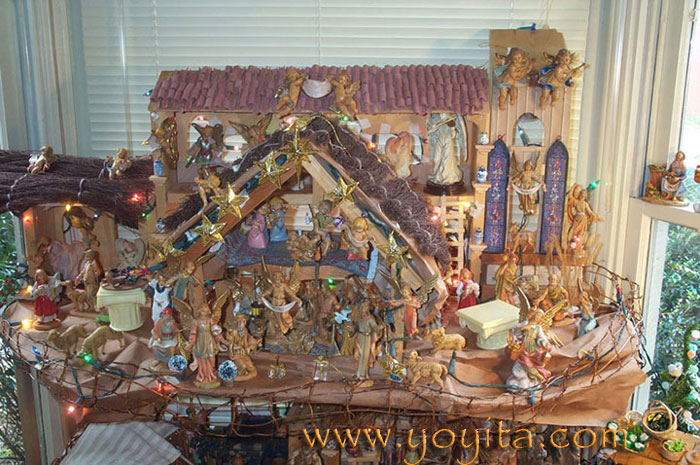
Bookmark it at Del.icio.us
| Nativity | Christmas | Lukas 2 | Emmanuel | Magi | gold | frankincense | myrrh | shepherds | Virgin Birth | Nazareth | Holy Ghost | angel | Protoevangelium of James | Church of the Nativity | Bethlehem | Luke 2:4 | King of the Jews | Epiphany | Eastern Christianity | liturgical season of Christmastide | Nazareth | Massacre of the Innocents | Bethlehem | Star of Bethlehem | the Messiah | Balthasar | Melchior | and Caspar | Bible | Mary | angel Gabriel | Holy Spirit | Roman Catholic Church | canonical gospels | Gospel of Mark | birth | Jesus of Nazareth | The Nativity Story | Christians | Gospel of Matthew | Gospel of Luke | Gospel of Mark | Nativity of Jesus | Christmas | Jesus|Joyful Mysteries | Christmas | Gospel episodes | Biblical criticism | Ginivelezh Jesu fødsel | Geburt Christi | Nativité | Natività | Geboorte van Jezus volgens | Nativity | Christmas | |
Send this page about Nativity and Christmas to a friend
 |
Do you like this page? Bookmark it at Del.icio.us |
Nativity |
 |
|||||||||||||||||||
This is the 2005 Nativity. It has 3 levels. On the first level there are angels, shepperds and the manger. On the second level there are the vineyard, the Inn, the musicians and to the right the vegetables' market with live animals. |
|||||||||||||||||||
| Merry Christmas see your e_card |
|||||||||||||||||||
 |
|||||||||||||||||||
First level Nativity Christmas fontanini, creche, baby Jesus Yoyita |
|||||||||||||||||||
|
|||||||||||||||||||
 |
|||||||||||||||||||
Nativity, second level |
|||||||||||||||||||
 |
|||||||||||||||||||
| Lower level of the Nativity, Wise men tent at the left, Plaza in the center, with Roman soldiers, wood stairs and a poor fallen figure of a shepheard | |||||||||||||||||||
|
|||||||||||||||||||
| Nativity | Christmas | Lukas 2 | Emmanuel | Magi | gold | frankincense | myrrh | shepherds | Virgin Birth | Nazareth | Holy Ghost | angel | Protoevangelium of James | Church of the Nativity | Bethlehem | Luke 2:4 | King of the Jews | Epiphany | Eastern Christianity | liturgical season of Christmastide | Nazareth | Massacre of the Innocents | Bethlehem | Star of Bethlehem | the Messiah | Balthasar | Melchior | and Caspar | Bible | Mary | angel Gabriel | Holy Spirit | Roman Catholic Church | canonical gospels | Gospel of Mark | birth | Jesus of Nazareth | The Nativity Story | Christians | Gospel of Matthew | Gospel of Luke | Gospel of Mark | Nativity of Jesus | Christmas | Jesus|Joyful Mysteries | Christmas | Gospel episodes | Biblical criticism | Ginivelezh Jesu fødsel | Geburt Christi | Nativité | Natività | Geboorte van Jezus volgens | Nativity | Christmas | |